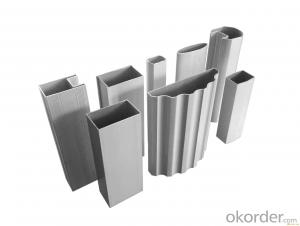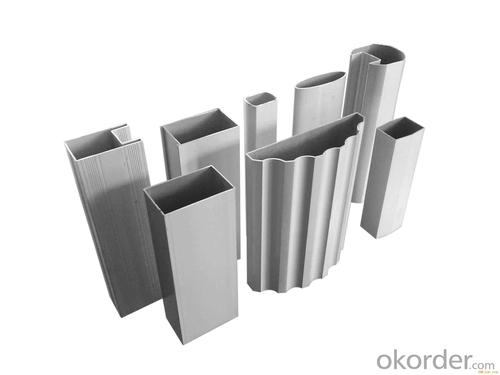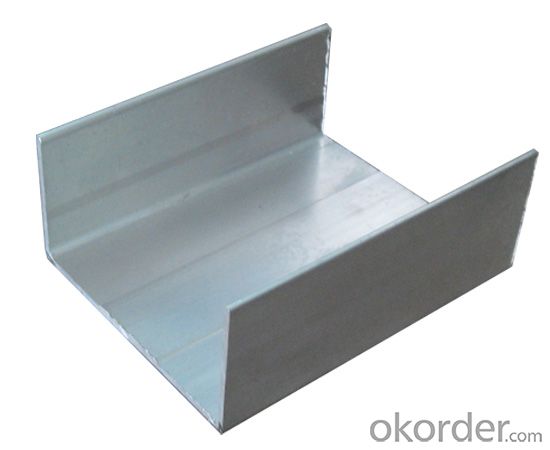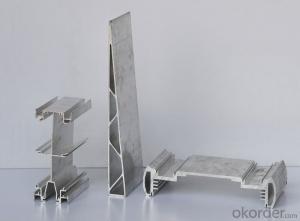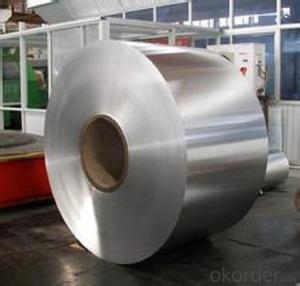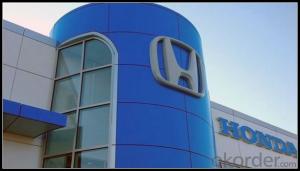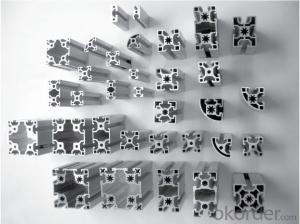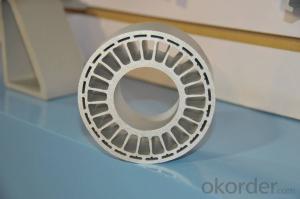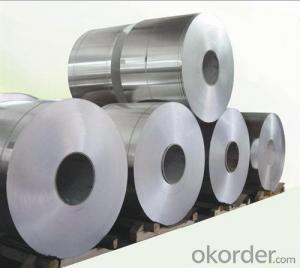Carrier Aluminum Coils S-Profile for Industrial Applications
- Loading Port:
- Shanghai
- Payment Terms:
- TT OR LC
- Min Order Qty:
- 15 m.t.
- Supply Capability:
- 2000 m.t./month
OKorder Service Pledge
OKorder Financial Service
You Might Also Like
Specification
Structure of Aluminium S-Profile for Industrial Applications:
Coated aluminum coil/sheet are of a wide range of colors, which gives wonderful appearance no matter in residential and commercial constructions of great exhibition centers.
The coated aluminum coil/sheet have been widely used in the fields of construction and decoration( garage doors, ceiling etc.), electronic appliances, lighting decoration, air-condition air pipes, sandwich panels and drainages etc.
Main Features of the Aluminium S-Profile for Industrial Applications:
1) High flexibility
2) Impact resistance
3) Excellent weather-proof durability
4) Anti-ultraviolet
5) High erosion resist
Images of the Aluminium S-Profile for Industrial Applications:
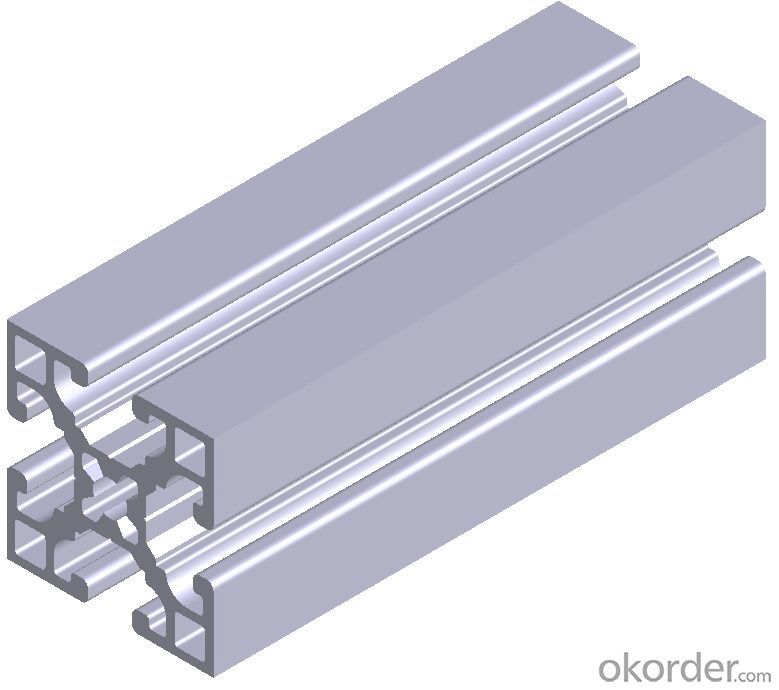
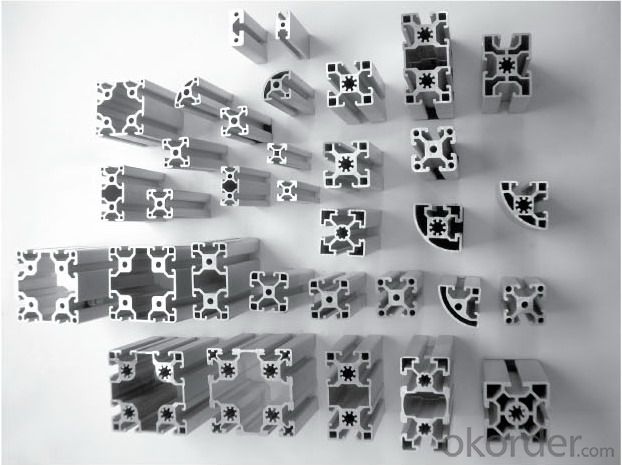
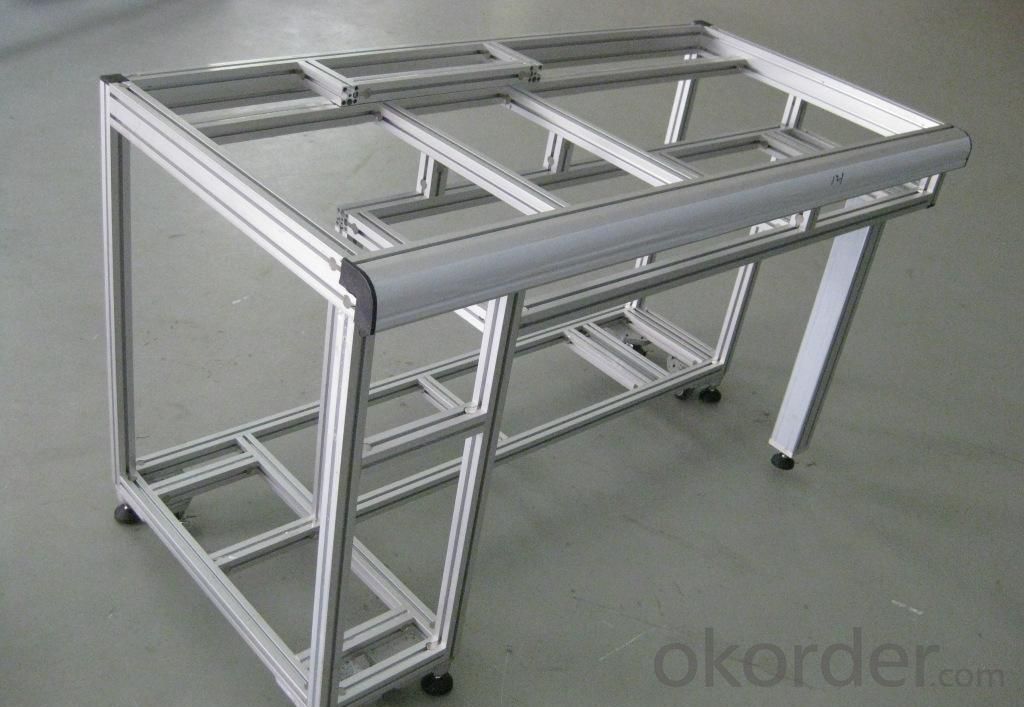
Aluminium S-Profile for Industrial Applications Specification:
Alloy | A1100,A3003,A1050,A8011 etc |
Temper | H16,H18,H24 |
Thickness | From 0.024mm to 1.2mm |
Width | Standard width:1240mm |
Special width:1300mm,1520mm,1570mm,1595mm | |
Diameter | Standard dia:1200mm |
Interior dia:150mm,405mm,505mm | |
Weight | 2.5 T/coil,3.0 T/coil |
Coating | PE, PVDF, AC |
Surface | Embossed, mill finish, coated |
Color | AS to code RAL |
Gloss | 10-90%(EN ISO-2813:1994) |
Coating Thickness | PE: more than 18 micron |
PVDF: more than 25 micron | |
Coating Hardness (pencil resistance) | More than 2h |
Coating adhesion | 5J(EN ISO-2409:1994) |
Impact Resistance | No peeling or cracking(50 kg/cm,ASTMD-2794:1993) |
Flexibility (T-bend) | 2T |
MEK resistance | More than 100 |
FAQ:
a.What is monthly capacity
---CNBM is one stated own company and our monthly capacity is about 2000tons.
b. Now which countries do you export your goods?
---Now we export to South East Asia,Africa, North America,South America ect.
- Q: Can aluminum coils be used for gutter systems?
- Indeed, gutter systems can employ aluminum coils. The lightweight property, durability, and resistance to rust and corrosion make aluminum a favored material for gutters. It is common practice to utilize aluminum coils to shape seamless gutters, which present benefits such as reduced leakage and an enhanced visual appeal. Moreover, maintaining aluminum gutters is effortless, and they can be painted to harmonize with a building's exterior. All in all, aluminum coils are a fitting and frequently employed option for gutter systems.
- Q: Is it possible to use an aluminum coil as a paperweight for holding down papers?
- <p>Yes, you can use an aluminum coil as a paperweight. Aluminum is a lightweight and sturdy metal that can effectively hold down papers on a desk. Its weight and shape make it suitable for this purpose. However, ensure the coil is clean and smooth to avoid any damage to the papers or surfaces it comes into contact with. Additionally, consider the size and thickness of the coil to ensure it provides enough weight to keep your papers in place.</p>
- Q: What are the standard tolerance levels for aluminum coils?
- The standard tolerance levels for aluminum coils can vary depending on the specific requirements and industry standards. However, common tolerance levels for aluminum coils typically range from +/- 0.003 to 0.020 inches for thickness, and +/- 0.005 to 0.100 inches for width. It is important to consult the appropriate industry standards and specifications to determine the specific tolerance levels needed for a particular application.
- Q: Can aluminum coil 3003H24 replace 3A21H14?
- Yes.
- Q: How are aluminum coils stored to prevent damage?
- To prevent damage, aluminum coils are typically kept in a controlled environment. The storage area must be clean, dry, and well-ventilated to prevent moisture buildup that can cause corrosion. It is common to stack the coils on pallets or racks, keeping them off the ground and protecting them from dirt, dust, or water. It is important to ensure that the storage area is free of sharp objects or heavy items that could potentially dent or scratch the coils. Additionally, it is crucial to store the coils in a way that prevents them from shifting or falling, as this could cause deformation or other damage. Proper labeling and organization of the coils are also necessary for easy identification and access without causing harm. Paying careful attention to storage conditions and handling practices is essential in maintaining the integrity and quality of aluminum coils and preventing potential damage.
- Q: How are aluminum coils processed and shaped into different forms?
- Aluminum coils go through a series of processes to shape them into different forms. The first step is the uncoiling process, where the coil is unwound and straightened. This allows for easier handling and further processing. Next, the aluminum coil goes through a cleaning process to remove any dirt, grease, or other impurities that may be present on the surface. This is done to ensure that the final product has a clean and smooth finish. After cleaning, the coil is typically subjected to a series of heat treatments to improve its mechanical properties. This process, known as annealing, involves heating the coil to a specific temperature and then slowly cooling it down. Annealing helps to increase the aluminum's ductility, making it easier to shape and form. Once the coil is annealed, it can be processed into different forms using various techniques. One common method is called roll forming, where the coil is passed through a series of rollers that gradually bend and shape it into the desired form. Roll forming is often used to create sheets, strips, or tubes. Another popular shaping technique is called stamping, which involves using a die and press to cut or shape the aluminum coil into specific shapes. Stamping is commonly used to create intricate designs or components with precise dimensions. In addition to roll forming and stamping, other methods such as extrusion, bending, and welding can also be used to shape aluminum coils into different forms. These processes allow for the creation of a wide range of products, including automotive parts, household appliances, construction materials, and more. Overall, the processing and shaping of aluminum coils involve a combination of cleaning, heat treatment, and various forming techniques. These processes ensure that the aluminum is transformed into the desired form while maintaining its structural integrity and desired properties.
- Q: Is it possible to use aluminum coil as a material for crafting jewelry?
- <p>Yes, you can use aluminum coil to make jewelry. Aluminum is lightweight, affordable, and easy to work with, making it a popular choice for crafting. It's also hypoallergenic, which is a plus for those with metal sensitivities. However, it's softer than metals like sterling silver or gold, so it may require more care to prevent denting or bending. Aluminum can be shaped, cut, and polished to create various jewelry designs, but it may not hold up as well over time or under heavy use compared to harder metals.</p>
- Q: This question asks for a brief explanation of the process involved in the manufacturing of aluminum coils.
- <p>Aluminum coil is made through a series of processes starting with the melting of aluminum ingots or scrap. The molten aluminum is then poured into a casting machine where it's cooled and solidified into large slabs. These slabs are then heated and passed through a series of rolling mills to reduce their thickness and achieve the desired coil gauge. The rolling process is often hot or cold, depending on the final application of the coil. After rolling, the aluminum is coiled into rolls and may undergo additional treatments like annealing to improve its properties. Finally, the aluminum coil is cleaned, inspected, and shipped for use in various industries such as construction, automotive, and packaging.</p>
- Q: Is it possible to create a baking pan using aluminum coil material?
- <p>Yes, you can use aluminum coil to make a baking pan. Aluminum is a popular material for baking pans due to its excellent heat conductivity, which allows for even heating. When creating a baking pan from aluminum coil, ensure that the coil is food-grade and that the edges are properly sealed to prevent any sharp edges. It's also important to consider the thickness of the aluminum, as a thicker gauge will distribute heat more evenly. Always follow safety guidelines and ensure that the aluminum coil is suitable for use in an oven.</p>
- Q: Can aluminum coils be used in the manufacturing of medical devices?
- Yes, aluminum coils can be used in the manufacturing of medical devices. Aluminum is a lightweight and corrosion-resistant material that can be easily formed into coils, making it suitable for various medical applications such as imaging equipment, surgical instruments, and prosthetics.
Send your message to us
Carrier Aluminum Coils S-Profile for Industrial Applications
- Loading Port:
- Shanghai
- Payment Terms:
- TT OR LC
- Min Order Qty:
- 15 m.t.
- Supply Capability:
- 2000 m.t./month
OKorder Service Pledge
OKorder Financial Service
Similar products
Hot products
Hot Searches
Related keywords
